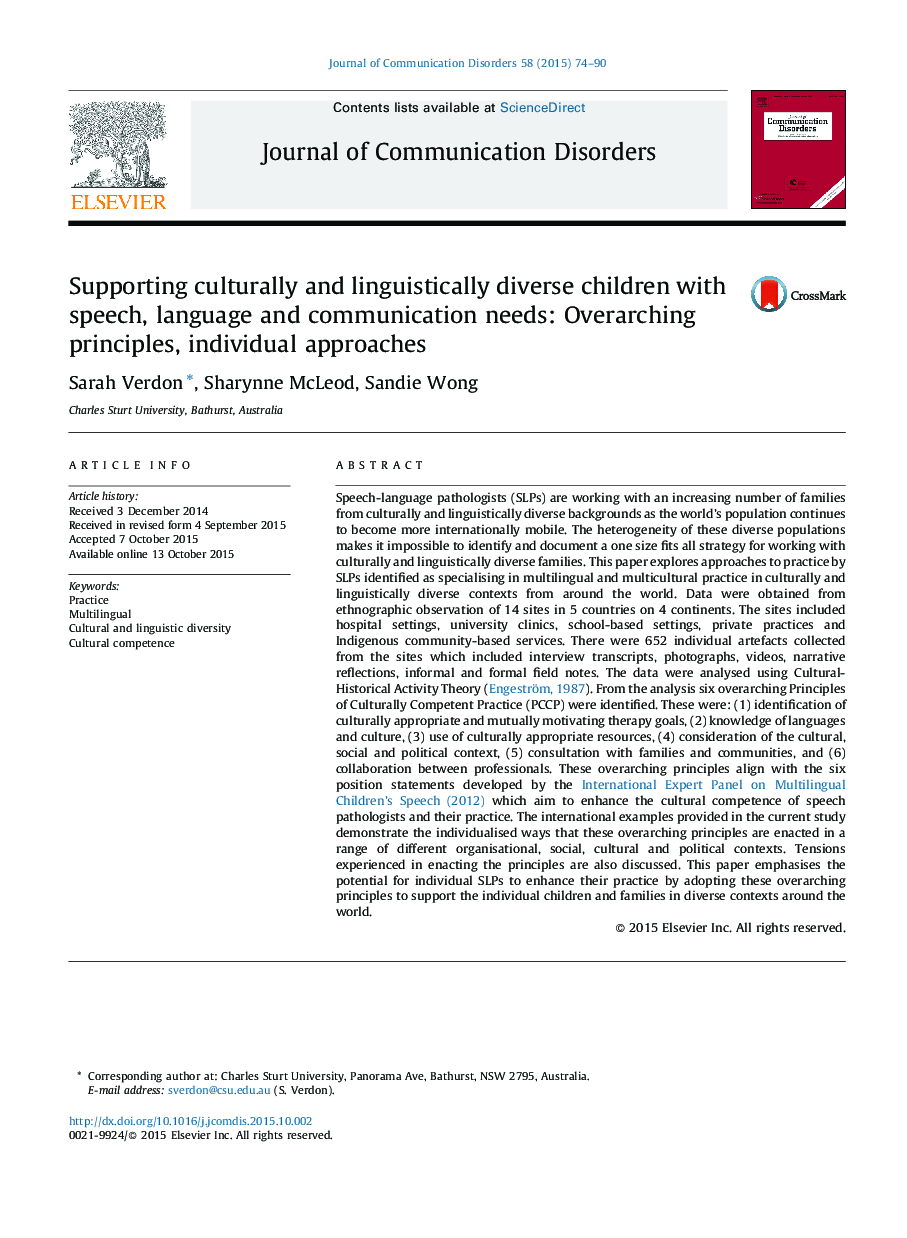| کد مقاله | کد نشریه | سال انتشار | مقاله انگلیسی | نسخه تمام متن |
|---|---|---|---|---|
| 910757 | 1473098 | 2015 | 17 صفحه PDF | دانلود رایگان |
• Six overarching Principles of Culturally Competent Practice (PCCP) were identified.
• Examples from 14 international sites are provided to illustrate the 6 PCCP.
• Tensions for implementing the principles in real world settings are discussed.
• SLPs are called to advocate for reform of existing practice using the 6 PCCP.
Speech-language pathologists (SLPs) are working with an increasing number of families from culturally and linguistically diverse backgrounds as the world's population continues to become more internationally mobile. The heterogeneity of these diverse populations makes it impossible to identify and document a one size fits all strategy for working with culturally and linguistically diverse families. This paper explores approaches to practice by SLPs identified as specialising in multilingual and multicultural practice in culturally and linguistically diverse contexts from around the world. Data were obtained from ethnographic observation of 14 sites in 5 countries on 4 continents. The sites included hospital settings, university clinics, school-based settings, private practices and Indigenous community-based services. There were 652 individual artefacts collected from the sites which included interview transcripts, photographs, videos, narrative reflections, informal and formal field notes. The data were analysed using Cultural-Historical Activity Theory (Engeström, 1987). From the analysis six overarching Principles of Culturally Competent Practice (PCCP) were identified. These were: (1) identification of culturally appropriate and mutually motivating therapy goals, (2) knowledge of languages and culture, (3) use of culturally appropriate resources, (4) consideration of the cultural, social and political context, (5) consultation with families and communities, and (6) collaboration between professionals. These overarching principles align with the six position statements developed by the International Expert Panel on Multilingual Children's Speech (2012) which aim to enhance the cultural competence of speech pathologists and their practice. The international examples provided in the current study demonstrate the individualised ways that these overarching principles are enacted in a range of different organisational, social, cultural and political contexts. Tensions experienced in enacting the principles are also discussed. This paper emphasises the potential for individual SLPs to enhance their practice by adopting these overarching principles to support the individual children and families in diverse contexts around the world.
Journal: Journal of Communication Disorders - Volume 58, November–December 2015, Pages 74–90
